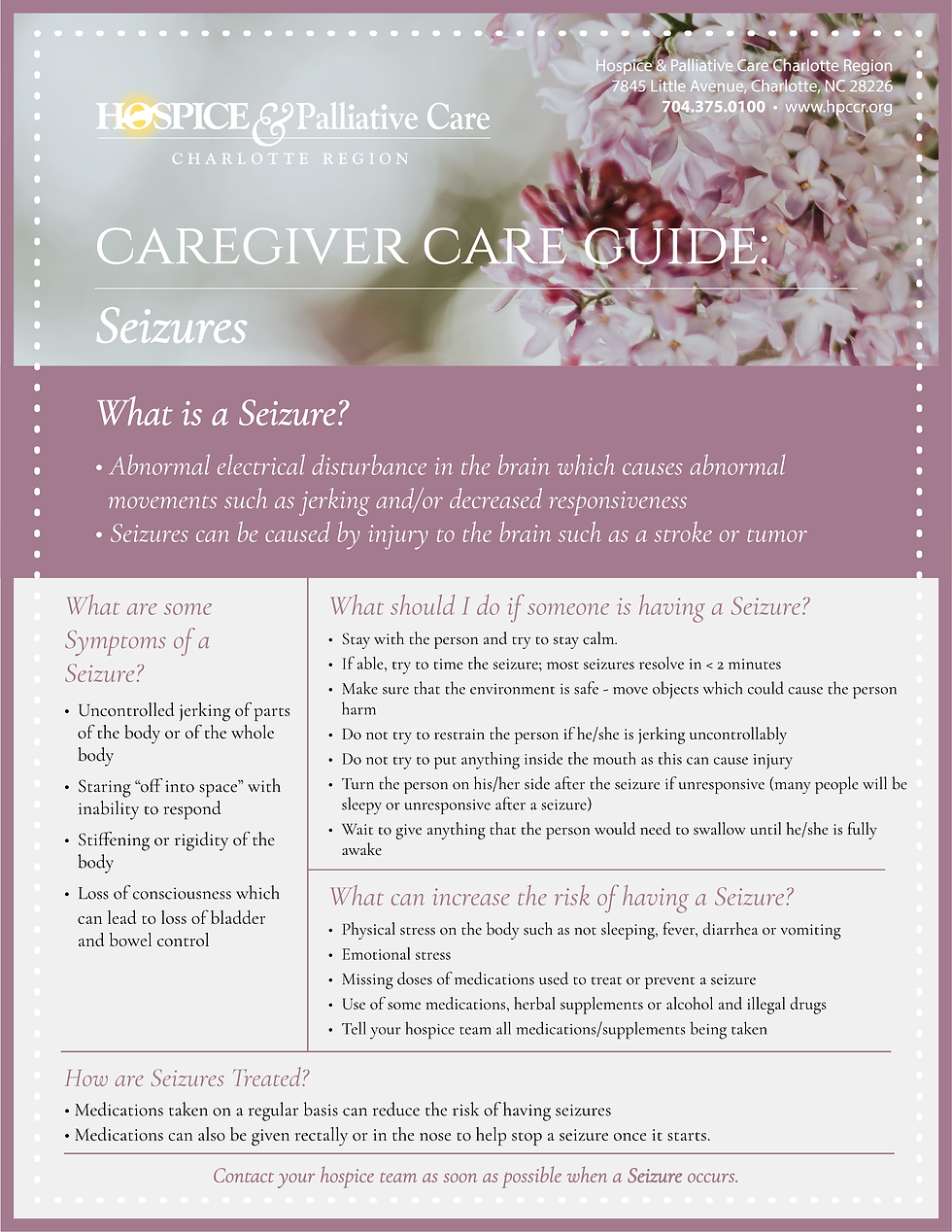Caregiver Care Guide - Seizures
- Mar 1, 2021
- 1 min read
A caregiver's guide to helping a loved one under hospice care with the symptoms of seizures.

What are some Symptoms of a Seizure?
Uncontrolled jerking of parts of the body or of the whole body
Staring “off into space” with inability to respond
Stiffening or rigidity of the body
Loss of consciousness which can lead to loss of bladder and bowel control
What should I do if someone is having a Seizure?
Stay with the person and try to stay calm.
If able, try to time the seizure; most seizures resolve in < 2 minutes
Make sure that the environment is safe - move objects which could cause the person harm
Do not try to restrain the person if he/she is jerking uncontrollably
Do not try to put anything inside the mouth as this can cause injury
Turn the person on his/her side after the seizure if unresponsive (many people will be sleepy or unresponsive after a seizure)
Wait to give anything that the person would need to swallow until he/she is fully awake
What can increase the risk of having a Seizure?
Physical stress on the body such as not sleeping, fever, diarrhea or vomiting
Emotional stress
Missing doses of medications used to treat or prevent a seizure
Use of some medications, herbal supplements or alcohol and illegal drugs
Tell your hospice team all medications/supplements being taken
How are Seizures Treated?
Medications taken on a regular basis can reduce the risk of having seizures
Medications can also be given rectally or in the nose to help stop a seizure once it starts.
Contact your hospice team as soon as possible when a Seizure occurs.
To view or download a hardcopy of the "Caregiver Care Guide: Seizures," click the download button below.









